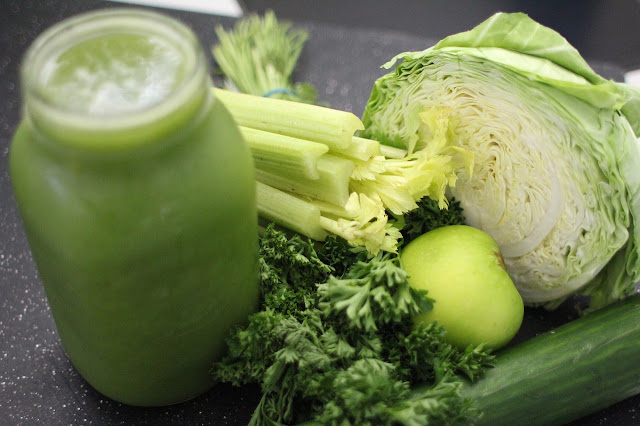Featured Post
- Get link
- X
- Other Apps
Health Benefits Of Spinach
Spinach is among the most popular green leafy vegetables. It belongs to the amaranth family and is related to quinoa and beets. In addition, it is considered very healthy, since it is rich in antioxidants and essential nutrients, which provide a series of health benefits.
Eating spinach can benefit eye, hair, and skin health, reduce oxidative stress and lower blood pressure levels ; it can also help with cancer treatment. All these properties could be attributed to the "phytochemicals that spinach contains."
In this article we will explore the "nutritional profile of spinach" and its important benefits for the health of the body.
Nutritional Profile Of Spinach
The most abundant nutrients in spinach leaves include vitamins A, C, K, iron , folate, and calcium. In addition, it contains powerful antioxidants , such as lutein, zeaxanthin and quercetin, "all of these fight free radicals and reduce oxidative stress . "
"One hundred grams of spinach" contains 23 calories, 3 grams of protein, 4 grams of carbohydrates and 2 grams of fiber . Other important nutrients also include:
99 mg calcium
3 mg iron
49 mg of phosphorus
558 mg potassium
79 mg magnesium
28 mg of vitamin C
9,380 IU of vitamin A
483 mcg of vitamin K
194 mcg of folic acid
12,200 mcg of lutein and zeaxanthin
These powerful nutrients work together to deliver many of the benefits of spinach, which we will discuss below.
Nutrition Profile Source: United States Department of Agriculture,
Benefits Of Spinach On Body Health
Spinach is full of "carotenoids" that fight oxidative stress and cancer. The "fiber" it contains promotes satiety and can help control diabetes. "Calcium" promotes bone health, "lutein and zeaxanthin" improve vision.
1. Healthy Skin, Hair and Nails
The vitamin A in spinach can protect the skin from ultraviolet radiation, combat oxidative stress that occurs in the dermal layers, and promote skin health. Regular consumption of spinach can give you healthier skin.
Several studies show that the vitamin C in spinach can promote collagen synthesis . The magnesium and iron in spinach are also believed to promote healthy hair.
Iron deficiencies have been associated with hair loss. Spinach, which "is a rich source of iron," can help combat hair loss.
The "biotin" , a mineral found in spinach, may help treat brittle nails.
It may interest you: 5 Health Benefits of Celery in Diet
2. It Can Help You Lose Weight
Some studies show that spinach can suppress hunger.
Overweight women showed a 43% greater body weight loss after consuming 5 grams of spinach juice for 3 months. At the same time, the need to eat sweets was reduced by 95%.
Spinach extract contains "thylakoids", which are membranes that have all the enzymatic machinery necessary for photosynthetic reactions to occur.
It may interest you:100 Diet Plan For Weight Loss pdf Download
3. Can Help Treat Diabetes
Spinach promotes satiety, which reduces the glucose response after meals. This is attributed to the high fiber and water content in the vegetable.
Spinach also contains "nitrates," compounds that help prevent insulin resistance. They can also relieve "inflammation," a major risk factor for diabetes . Spinach could be an ingredient to prevent insulin resistance. → See Source .
Another reason that spinach can be part of an antidiabetic diet is its low carbohydrate content. Compared to starchy vegetables, "spinach is a non-starchy vegetable with a low carbohydrate count ." This can also lead to lower blood sugar levels.
People with type 2 diabetes can include spinach in their diet. Its low carbohydrate count can help regulate glucose levels.
4. Can Regulate High Blood Pressure Levels
The "nitrates" in spinach deserve the credit. These compounds improve endothelial function (a key factor in maintaining vascular health) and can acutely lower blood pressure levels , thereby promoting heart health. → See Source .
"These nitrates can also relieve arterial stiffness, " which can lead to high levels of blood pressure.
It may interest you:10 Natural Ways To Reduce High blood Pressure
"Spinach leaf proteins" may be helpful in treating hypertension. It can also reduce the risk of heart disease. → See Source .
The magnesium in spinach also regulates blood pressure levels. This mineral relaxes and widens the blood vessels, thus promoting blood flow.
5. May Decrease Cancer Risk
The "glycoglycerolipids" in spinach may be key in preventing cancer. Which they can accomplish by potentially inhibiting tumor growth. → See Source .
Some studies indicate that the vitamin A in spinach is related to a reduced risk of breast cancer. That is why the consumption of "spinach or carrots", which are also rich in vitamin A, more than twice a week has been associated with a modest decrease in the risk of breast cancer .
Spinach is a "cruciferous vegetable", according to studies, these vegetables are rich in carotenoids (such as lutein and zeaxanthin) that can help in the treatment of cancer. Additionally, cruciferous vegetables release "indoles" when prepared, which inactivate carcinogens and fight inflammation. → See Source .
6. Can Boost Brain Function
Spinach can have anti- stress and antidepressant effects . These effects can be attributed to spinach's ability to lower blood levels of 'corticosterone' , a hormone that is secreted during times of anxiety and is responsible for sudden memory loss. → See Source .
Other nutrients in spinach, such as vitamin K, folate, lutein, and vitamin A, are also believed to promote brain health and slow cognitive decline.
"Spinach is actually a superfood . " Eating raw spinach as part of a salad or a smoothie with lemon or orange can be a good idea. Although there are other ways.
7. Helps Improve Visual Health
Spinach contains two important antioxidants that have been widely studied (lutein and zeaxanthin). These antioxidants are recognized for their effects on promoting vision, fighting reactive oxygen species, and reducing the risk of cataracts and age-related macular degeneration. → See Source .
In one study it was found that regular consumption of spinach increased the optical density of the macular pigment. → See Source .
8. Can Strengthen Bones
Spinach can increase bone health. "It is rich in vitamin K and calcium", two important nutrients for bone strength.
Calcium deficiencies throughout life can lead to osteoporosis, and it is associated with low bone mass, accelerated loss of bone mass, and a high rate of fractures. The calcium in spinach can help counteract these problems. → See Source .
9. May Help Promote Digestion
Spinach contains fiber in moderate quantity (2.2 grams in 100 grams of spinach leaf). Although not much, fiber may offer some benefits.
Research shows that fiber promotes satiety for longer. It also "promotes intestinal regularity " by helping food move through the digestive system .
10. Helps Treat Asthma
Oxidative stress has a role in asthma. Spinach contains vitamin C, a powerful antioxidant that can combat oxidative stress. This antioxidant can help in the treatment of asthma.
The "lutein and zeaxanthin" in leafy greens can also help treat asthma. Evidence suggests that eating spinach can also help prevent asthma from developing.
However, it must be clear that spinach and other foods may not be a definitive cure for asthma. More research is needed to understand the effects of diet on asthma and other allergies. → See Source .
11. Can Promote Fetal Development
Spinach "contains folic acid," an essential nutrient for fetal development. This nutrient reduces the risk of abnormalities in the fetal nervous system.
Some research suggests that the iron in spinach may also help prevent premature births and low birth weight babies. However, more studies are needed in this regard. → See Source .
How To Include Spinach In Your Diet
You could do your body too much good if you regularly add spinach to your meals. Adding them to your diet is easy.
You can "make a rich hummus recipe . " Cooked spinach tastes great, and you just need: cooked chickpeas, olive oil , lemon juice, water, toasted sesame seeds, garlic, cumin, paprika and salt. The last 4 ingredients can be varied in quantity according to taste.
You can also add spinach to curry. Blanching spinach and adding it to your dishes also works.
Spinach can be part of your vegetable salad. Drizzling a little olive oil over the salad makes it much healthier.
You can make spinach the main ingredient to prepare your cupcakes or muffins.
You can add spinach to your morning smoothie. You can also blend spinach leaves and prepare a rich isotonic drink with lemon or orange (spinach juice).
You can flavor a canned tuna with spinach, adding a tablespoon of olive oil, chiltoma and chopped onion, add salt to taste.
Possible Side Effects of Spinach
Spinach is full of essential nutrients that our bodies need. Most of the research has confirmed its health benefits. However, eating spinach in excess could lead to side effects.
1. May Make Kidney Stones Worse
One of the most common concerns with spinach, spinach contains large amounts of oxalates. These can bind to calcium in the urinary tract and cause calcium oxalate stones. Therefore, people with kidney disease (stones) should stay away from spinach. → See Source . >>
2. May Interfere With Anticoagulant Drugs
The vitamin K in spinach plays a role in the formation of blood clots. Therefore, you should be careful about your vitamin K intake if you are taking blood thinners. Spinach is high in vitamin K and can interfere with medications that help thin the blood, including "warfarin." You may need to reduce your spinach consumption if you are taking warfarin.
conclusion
Clearly "spinach is a superfood" and one of the most important foods you can eat regularly. It is packed with vital nutrients that keep most diseases at bay.
However, you may need to limit your intake if you have kidney disease or take thyroid medications. So it is advisable to consult your doctor.
Consuming spinach will definitely help you in the long run, but if you have any medical conditions and are taking medications, you should be cautious.source source (1)
It may interest you:10 foods to lack of iron deficiency





Comments
Post a Comment